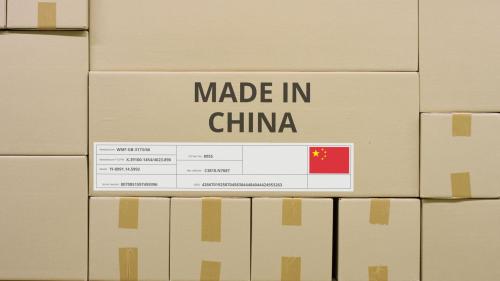In a new Brookings Cafeteria podcast and a new paper, “Why Trade Matters,” Ambassador Miriam Sapiro explains that every increase of $1 billion in exports supports approximately 6,000 American jobs. “If we want to grow our economy and create more jobs for more Americans,” Sapiro says in the interview, “it’s very important that we develop new trade agreements that can tear down the barriers that are currently inhibiting our ability to reach our full export potential.”
Sapiro, a visiting fellow in the Global Economy and Development program at Brookings, was deputy U.S. trade representative from 2009 to 2014 as well as acting U.S. trade representative, and also served on the National Security Council and at the U.S. State Department.
“Jobs in the export-related sectors tend to pay more than other jobs, about 10-18 percent more,” she continues. “So not only do our exports support jobs, but they also support better paying jobs.”
Misinformation about Trade and Jobs
In the podcast, Sapiro points to the “significant amount of misinformation out there” on many issues related to two of the ongoing trade negotiations: the Trans-Pacific Partnership (TPP) and Transatlantic Trade and Investment Partnership (TTIP). One area of misinformation, Sapiro explains, concerns trade’s effect on jobs. As she puts it:
One worry that I do have is about potential job loss, and that’s an issue that I think is often misunderstood but obviously is a very serious concern [because] trade agreements can lead to the elimination of some jobs. But economists call this “job displacement” because more jobs are created overall than are reduced. And in order to stem job loss, it’s really important for countries to enact job training programs, such as the United States does with respect to … Trade Adjustment Assistance.
So it’s important on this issue to look at all of the data which also shows that there is no clear relationship between a new trade agreement and job reduction. And that’s because advances in technology and globalization can and do adversely affect the job market in a particular country [usually by] reductions in some sectors but gains, sometimes significant gains, in other sectors. In other words, there is no net job loss, there is actually net job gain.
Sapiro cites research from the Peterson Institute that found that although four million Americans become jobless each year, the number of jobs is rising; and that in the seven years following the start of NAFTA (the free trade agreement among Canada, Mexico, and the United States), seven million U.S. jobs were added and U.S. unemployment dropped. “Now that’s small comfort to those individuals whose jobs did disappear because of globalization and technology,” Sapiro added. “And again it means that the U.S. and others need to work harder to make sure there are real job retraining opportunities available and, hopefully, new jobs.”
Trade’s Bottom Line: Jobs
“It comes down to jobs,” Sapiro says in the podcast.” Continuing, she says that:
Americans need more and better jobs and I explained earlier why exports have an important role to play in helping the U.S. fully recover from the financial crisis, stimulating more growth, thereby creating more jobs. More demand for exports [and easing the] ability to export through these trade agreements, means we can sustain and create more jobs.
“And this is true by the way not just for the United States but for our trading partners.”
Download the paper here.
Sapiro also recently interviewed two members of Congress, Rep. Jim Costa (D-Calif.) and Erik Paulsen (R-Minn.) about next steps on the U.S. trade agenda. The congressmen stressed the importance of trade for their districts and U.S. competitiveness overall. Both believe that crafting legislation on trade promotion authority (TPA) is a key priority and a bi-partisan agenda item for congressional action.
The Brookings Institution is committed to quality, independence, and impact.
We are supported by a diverse array of funders. In line with our values and policies, each Brookings publication represents the sole views of its author(s).



Commentary
New Trade Agreements Lead to More, and Better, Jobs
October 8, 2014